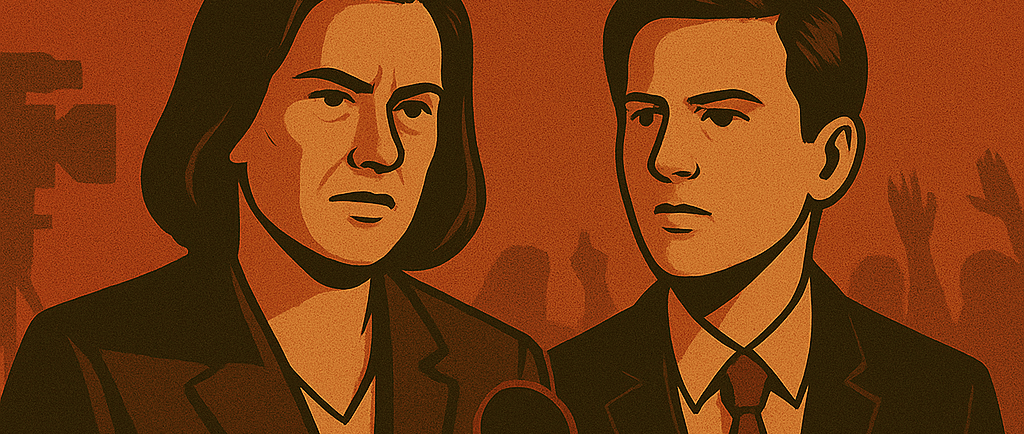Episode 4
Redemption and Rebirth


At this point in Nazi America: The Campaign, the story shifts focus to a woman who has been both villain and victim — Jill Lunden, a once-powerful political figure forced into exile by the very party she helped build. Episode Four is not just about her comeback; it’s about guilt, survival, and the impossible weight of redemption.
Summary
Jill Lunden’s story begins with exile. Once a trusted Democratic leader, she was cast aside after refusing to “fall on the sword” for President Charles Sport — the man under whose administration she relied on falsified intelligence to justify a brutal, years-long war in Botswana. The war ended in devastation, with reports of a nuclear detonation and mass casualties. Though Jill faced ten separate investigations, she was never indicted. Yet public opinion — and her party — condemned her all the same.
After Sport’s suicide, the Democratic Party is desperate for new leadership to counter Daniel Thompson’s growing populist threat. Reluctantly, they turn back to Jill, the same woman they once blamed for everything. Understandably bitter, Jill resists at first, rejecting overtures from the DNC and its sharp-tongued aide. But after a tense confrontation and a heart-to-heart with Stacy, a former ally with a complicated shared past, Jill finally agrees to run.
We also meet Tracy Kincaid, a woman with a dark secret that led her into rehab. Tracy tries to come clean to Jill, but before she can, Jill unexpectedly offers her the role of campaign manager — a move that intertwines two haunted women in a shared pursuit of second chances.
Connection to the Books
Fans of the novels will recognize how deeply this episode anchors Jill’s arc. In Election and Conspiracy, the aftermath of the Botswana War continues to shape Jill’s life and career. The eleven-year conflict ended only when America withdrew, leaving behind a nation shattered and irradiated. Jill’s guilt over her role in the war — even if she acted under false pretenses — defines much of her character going forward.
Tracy Kincaid’s introduction here also sets up major plotlines in Conspiracy and Insurrection, as her personal demons and political brilliance collide. Readers familiar with the Tracy Kincaid audiobook will spot clear emotional echoes of that standalone story.
Real-World Reflections
Jill Lunden’s arc is a deliberate fusion of several real-world political figures. Like Hillary Clinton, she faces endless investigations and gendered scrutiny — blamed for actions committed under another’s authority. Yet she also borrows elements of Colin Powell, who presented the now-infamous evidence that justified the Iraq War. Jill, too, trusted manipulated intelligence — a decision that led to catastrophic consequences.
President Charles Sport, meanwhile, is a composite of multiple real-world leaders — Nixon’s paranoia, Trump’s self-importance, and the moral implosion of those who abuse power. His suicide is symbolic: the implosion of a corrupt system that devours its own.
What emerges is a portrait of American politics at its most cynical. When things go wrong, those in power don’t take accountability — they find someone to sacrifice. Jill refused, and the price was exile. But when the party needs a savior, the same people who vilified her come knocking. In other words: that’s politics.
Critical Thinking
Jill Lunden’s return to politics is framed as both redemption and necessity. Considering the episode’s themes of guilt versus duty, do you believe Jill’s decision to run stems from genuine moral conviction or political self-preservation?
This episode contrasts the polished façade of political “optics” with the private pain of personal failure — like Tracy’s untold trauma. What does this say about authenticity in politics? Can redemption ever be real when it also doubles as a campaign strategy?
Author’s Note
Writing Jill’s story was emotionally exhausting. She’s flawed, brilliant, angry, and deeply human. Her return to public life feels both inevitable and tragic — the perfect reflection of a political system where morality and ambition rarely coexist.
